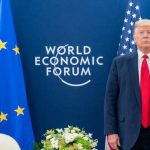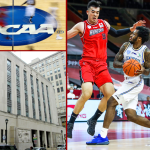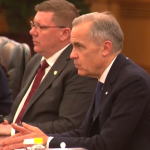‘The judiciary does not set immigration policy or decide enforcement priorities’
By Bob Unruh

The Supreme Court on Monday restored the authority of the administration of President Donald Trump to conduct raids on illegal aliens in Los Angeles.
The court, 6-3, blocked a lower court’s claim that restricted federal agents’ authority to conduct immigration stops.
The decision came in response to an emergency request from the Trump administration and puts on hold a July ruling from a leftist judge, Maame Ewusi-Mensha Frimpong, who sided with those who want to protect illegal aliens, even illegal alien criminals, in the U.S.
🚨 MAJOR BREAKING: The US Supreme Court has just given President Trump the green light to conduct SWEEPING immigration enforcement in Los Angeles, 6-3
HUGE loss for Gavin Newsom and foreign invaders!
They’re ALL going back! 🔥 pic.twitter.com/xfNTODh9ax
— Nick Sortor (@nicksortor) September 8, 2025
BREAKING: A 6-3 Supreme Court ALLOWS the Trump administration to resume sweeping immigration raids in Los Angeles https://t.co/ilduM9LPSq pic.twitter.com/5lNeQsYuNn
— Jacob Wheeler (@JWheelertv) September 8, 2025
The Supreme Court just stayed the district court’s order restricting immigration enforcement in California’s Central District.
We argued the order was overly broad, aiming to hinder our ability to apprehend and remove illegal immigrants in Los Angeles.
We are a nation of laws.… pic.twitter.com/tdPXszdZAL
— Acting U.S. Attorney Bill Essayli (@USAttyEssayli) September 8, 2025
A report at NBC News said the three “liberals” on the high court dissented.
Frimpong had claimed that federal immigration authorities were not allowed to stop people based on their race or ethnicity or the fact they spoke Spanish.
The raids in L.A. had been launched as part of President Trump’s ongoing effort to secure the nation’s borders, which had been opened wide, admitting millions of illegals including criminals and terrorists, under Joe Biden.
The report said, “Immigrants and related groups that sued claimed the government’s approach violated the Constitution’s Fourth Amendment, according to which law enforcement need to have ‘reasonable suspicion’ before stopping people who may not be lawful residents in the United States.”
Frimpong’s claims had been allowed to stand by the 9th U.S. Circuit Court of Appeals.
There was no explanation from the high court for its reasoning. However, NBC reported Justice Brett Kavanaugh wrote a separate opinion concurring with the majority in which he cast doubt on whether a constitutional violation took place.
“Especially in an immigration case like this one, it is also important to stress the proper role of the Judiciary. The Judiciary does not set immigration policy or decide enforcement priorities,” he said.
Sonia Sotomayor, one of the extremist voices on the left in the court, said, “We should not have to live in a country where the Government can seize anyone who looks Latino, speaks Spanish, and appears to work a low wage job. Rather than stand idly by while our constitutional freedoms are lost, I dissent.”
Solicitor General D. John Sauer had submitted to the court that the plaintiffs demanding protection from the high court did not have legal standing and the lower court’s blanket ruling was too broad.
He explained, the report said, “while speaking Spanish or working in construction alone does not automatically create reasonable suspicion, such factors ‘can heighten the likelihood that someone is unlawfully present in the United States.'”










